Publications
Articles, publications, books, tools and multimedia features from the U.S. Institute of Peace provide the latest news, analysis, research findings, practitioner guides and reports, all related to the conflict zones and issues that are at the center of the Institute’s work to prevent and reduce violent conflict.
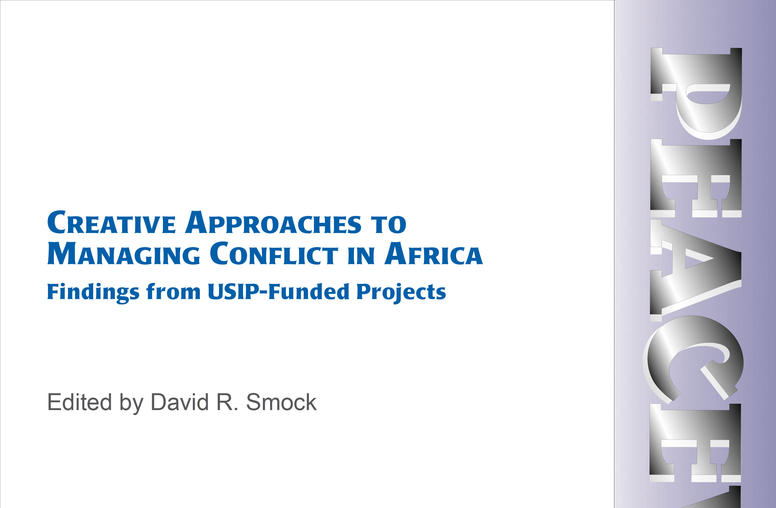
Creative Approaches to Managing Conflict in Africa: Findings from USIP-Funded Projects
The purpose of this report is to share some lessons of projects which have identified or implemented innovative approaches to managing Africa's conflicts, and examine their potential applicability to other conflicts there or elsewhere.
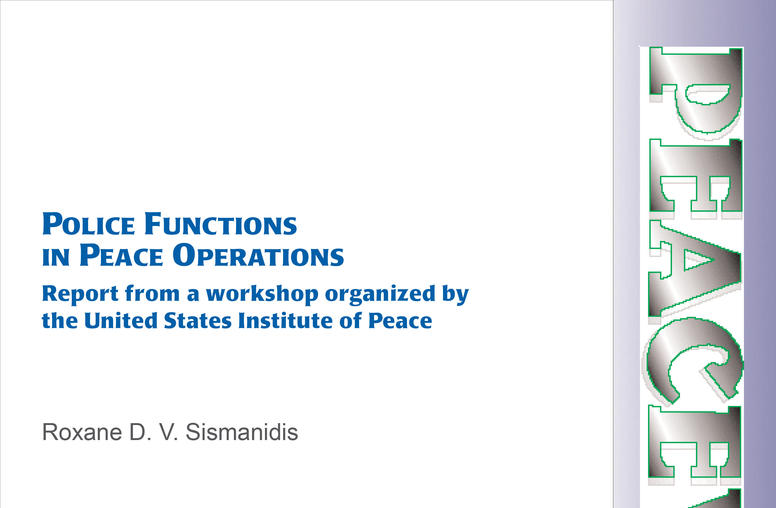
Police Functions in Peace Operations: Report from a workshop organized by the United States Institute of Peace
Much of the current debate on police functions in peace operations is informed by a distinct set of strategic and policy concerns that have acquired special prominence in the 1990s, as these operations have grown increasingly complex because of their deployment in countries whose societies have completely collapsed. The United States Institute of Peace decided to address these issues in view of its ongoing work on the rule of law and other postconflict issues.
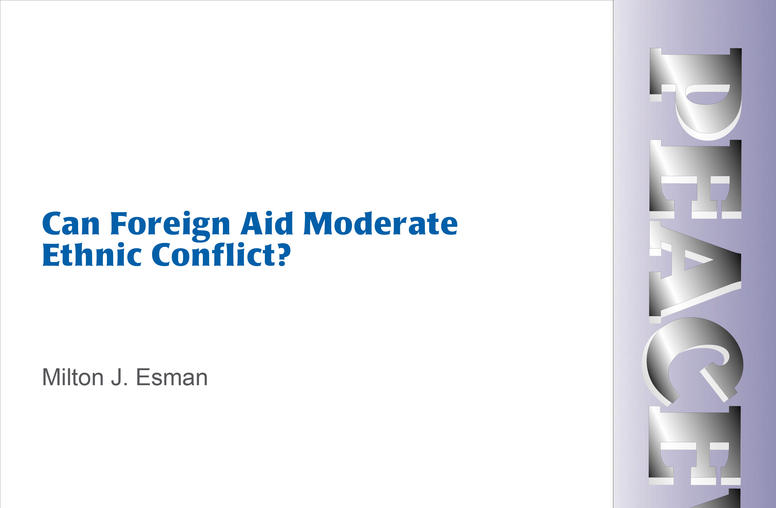
Can Foreign Aid Moderate Ethnic Conflict?
Since World War II, a complex network has emerged of bilateral and multilateral agencies that manage economic assistance to low-income countries in the form of investment projects, policy advice, and technical assistance. Although each of these agencies has its distinctive personality, most of them have avoided facing up to the post–Cold War reality of burgeoning ethnic conflict.
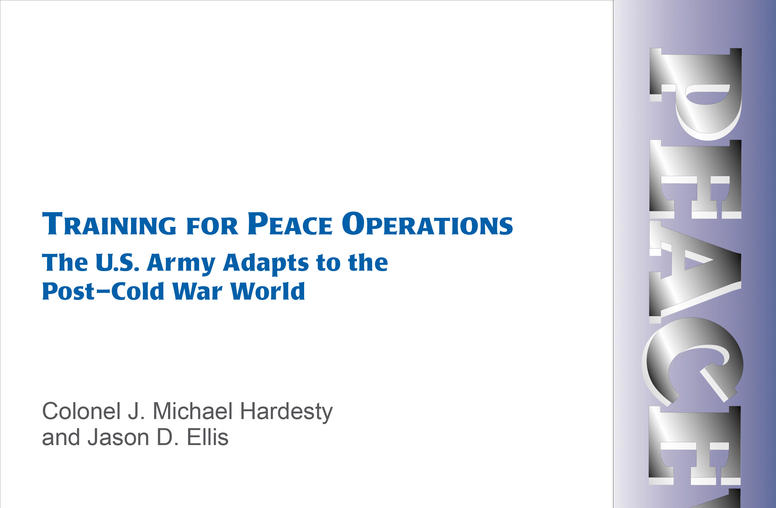
Training for Peace Operations: The U.S. Army Adapts to the Post-Cold War World
When the United States Institute of Peace announced a joint fellowship program with the U.S. Army War College, some observers unfamiliar with the Institute's work noted an apparent irony: Why should an organization devoted to the peaceful resolution of international conflict work with an institution whose main job is fighting wars?
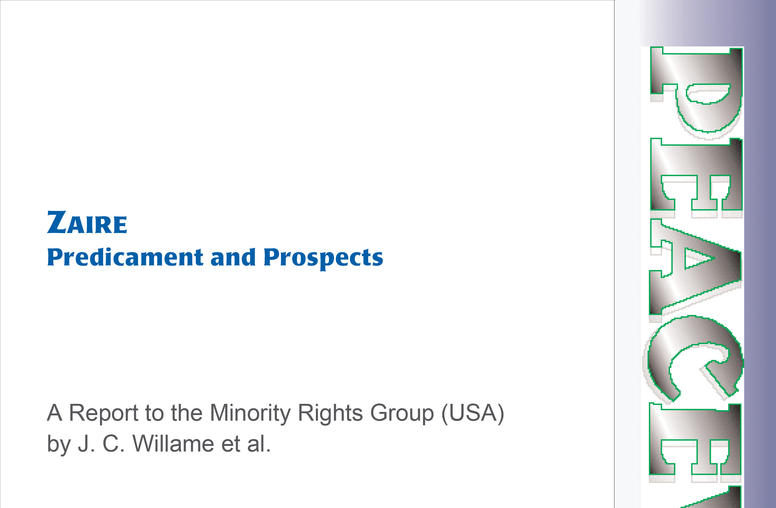
Zaire: Predicament and Prospects
For more than five years, the people of Zaire have struggled to survive in a state on the brink of utter collapse. Amid growing economic disarray and infrastructural breakdown, standards of living have plummeted, moral and ethical standards have withered, and violence has risen. Political authority is almost hopelessly fragmented and discredited.
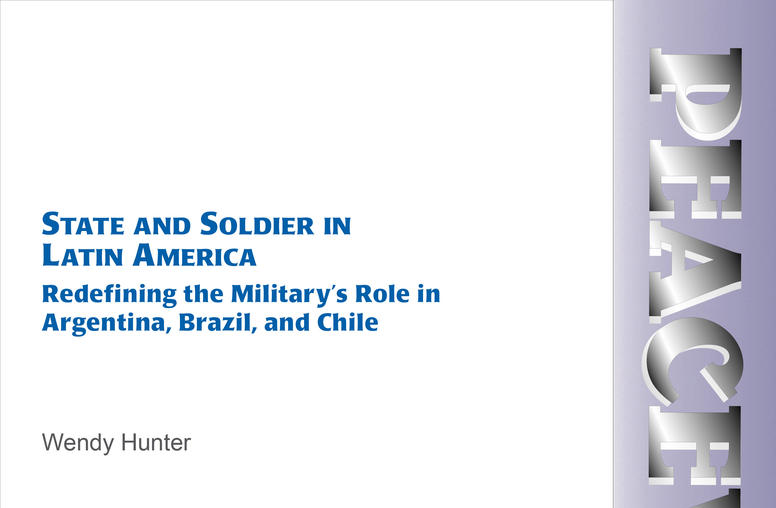
State and Soldier in Latin America: Redefining the Military's Role in Argentia, Brazil, and Chile
Recent years have given rise to an intense debate about appropriate roles for Latin America's armed forces: Should they remain the guardians of political stability, or should they restrict themselves mainly to external defense?
Peace Operations and Common Sense: Replacing Rhetoric with Realism
The shortcomings of several recent peace operations have led many people to conclude that the whole concept is flawed and has little bearing on U.S. interests. The record, however, suggests that peace operations have not only reduced instability in many parts of the globe but have also been something of a minor boon to U.S. foreign policy.
Peace Operations and Common Sense
The shortcomings of several recent peace operations have led many people to conclude that the whole concept is flawed and has little bearing on U.S. interests. The record, however, suggests that peace operations have not only reduced instability in many parts of the globe but have also been something of a minor boon to U.S. foreign policy. It is necessary to confront this strange gulf between Washington perceptions and reality. Denis McLean, a New Zealander, is currently Warburg Professor ...
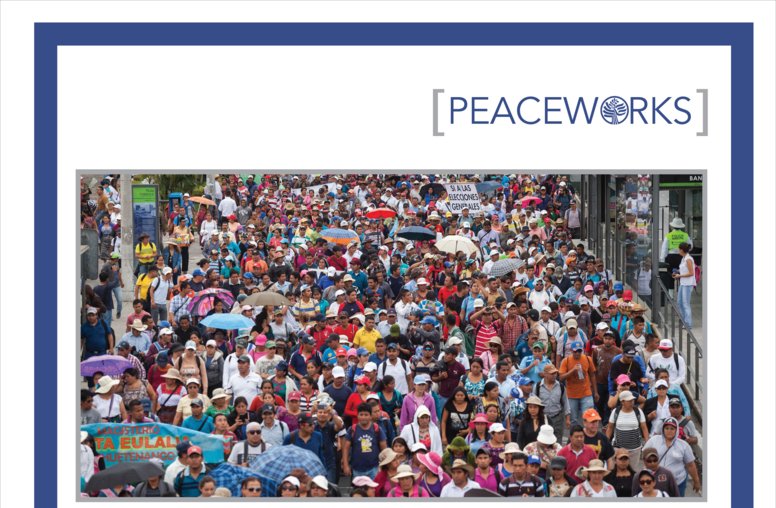
Negotiating Civil Resistance
Reviewing the literature on negotiation and civil resistance, this report examines the current divide between the two and digs deeper to identify the fundamental convergences. It builds on these findings to illustrate why negotiations and negotiation concepts are essential to the success of civil resistance campaigns. Using historical examples, it then examines the dynamics of negotiation in the context of these strategic domains.
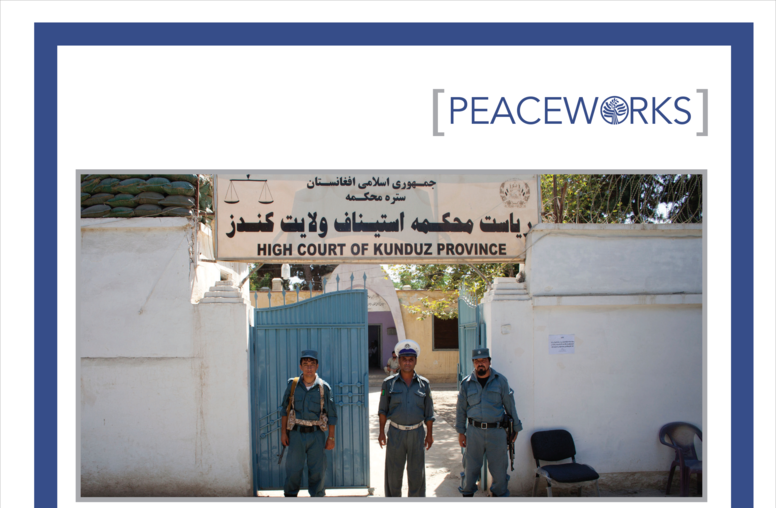
Rule of Law, Governance, and Human Rights in Afghanistan, 2002 to 2016
In the wake of the 2001 invasion, Afghanistan is a cautionary tale about underfunded, underplanned, and undercoordinated development agendas. Derived from extensive fieldwork, numerous interviews, and desk research into primary and secondary sources, this report examines the successes and failures in Afghan reconstruction over fifteen years to suggest ways to consolidate gains in rule of law, human rights, and good governance over the long term.